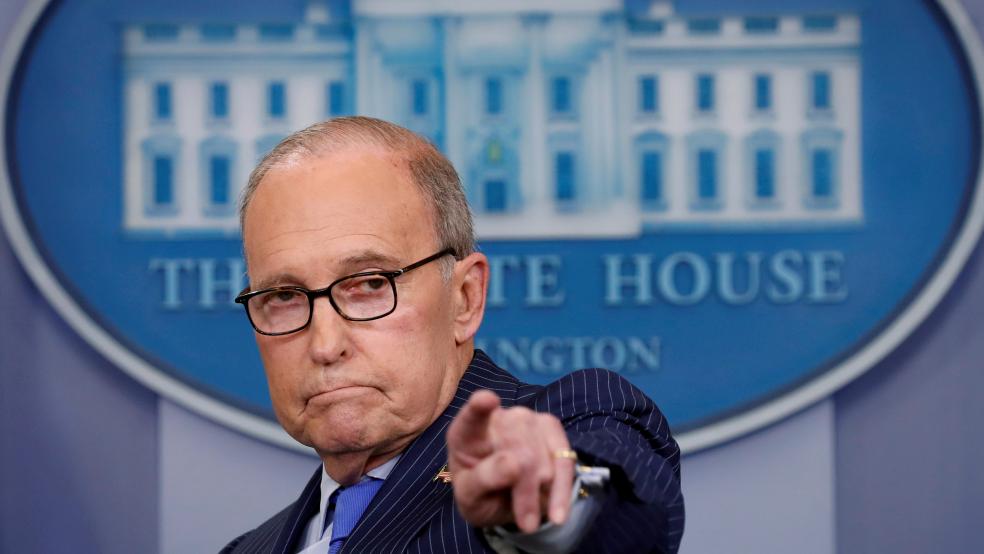White House economic adviser Larry Kudlow said Friday that the Trump administration is considering tax relief for industries hurt by the coronavirus. Expressing confidence that the U.S. economy is “fundamentally sound,” Kudlow said that the White House is mulling “timely and targeted” relief for specific sectors of the economy that are vulnerable to a slowdown, such as travel and hospitality. Airlines have already cut back on flights and warned that the virus outbreak could cost the industry more than $100 billion.
“The story I am trying to tell is a story of timely and targeted microforms of assistance, not gargantuan, across-the-board, throw-money-at-the-problem, which has not worked in the past,” Kudlow said.
The discussions are preliminary, but there is a growing sense that the federal government will have to provide more economic assistance in the coming weeks and possibly months in the face of a potential downturn, above and beyond the $8.3 billion emergency funding package President Trump signed into law Friday. Here are some proposals that have emerged this week:
Guaranteed paid sick leave: Democratic lawmakers introduced a bill Friday that would require all employers to provide paid sick days. About 25% of U.S. workers do not have access to paid sick leave, and the legislation from Rep. Rosa DeLauro (D-CT) and Sen. Patty Murray (D-WA) would allow all employees to accrue seven days of paid leave for illness or to care for a family member who is ill, with an additional 14 days available in the event of a public health emergency.
“The lack of paid sick days could make coronavirus harder to contain in the United States compared with other countries that have universal sick leave policies in place,” DeLauro said in a statement.
A $1 trillion stimulus: CNBC’s Steve Liesman says Congress should pass a $1 trillion “conditional emergency stimulus” to boost the economy, which would include an increase in unemployment benefits, aid to small businesses and payments to cover the cost of more medical care. Liesman said the government should take advantage of low interest rates to pay for the stimulus. “With the 10-year government bond yield at 0.7% and falling as I write, the cost to the government would be as cheap as it’s ever been,” he wrote Friday. “In fact, all you have to do is ask whether the return on that money is greater than the interest rate, either in GDP that’s not lost, or even added.”
$1,000 for every adult: Jason Furman, who chaired President Obama’s Council of Economic Advisers and is now a professor at the Harvard Kennedy School, wrote an op-ed in The Wall Street Journal Friday calling for an “accelerated, big, comprehensive and dynamic” stimulus that would provide $1,000 to every American adult and $500 for every child, extend unemployment insurance and boost Medicaid funding. The cost of such a package would be about $350 billion, Furman said, though it would go higher if the slowdown extends into 2021.
Federal assistance for states: Claudia Sahm, director of macroeconomic policy at the liberal Washington Center for Equitable Growth, says it’s time for policymakers to prepare for the next recession, whether it’s caused by the coronavirus or something else. Writing at The Hill Thursday, Sahm is calling for Congress to pass an automatic cash assistance program that would send checks to American households — something like $1,600 for a family of four — as soon as the unemployment rate rises above a given threshold. The recession signal could also trigger higher federal payments for Medicaid and the Children’s Health Insurance Program, freeing states to spend more on unemployment benefits and food stamps.




